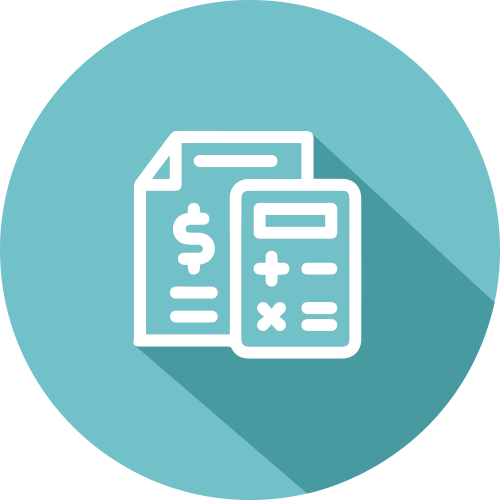Want to be rich? Don’t set budgets
Relevant topics Archive, Strategy
From self-help books to popular gurus preaching the rules of financial literacy – they all seem to have piece of advice in common: budgeting. Presumably, budgeting is the core ingredient of a healthy financial life. It just makes sense to determine in advance what you are going to buy and for what cost. But is it actually true?
If our brains would be perfectly rational, budgeting makes sense. And in many cases, budgeting tends to work in our favor. After finding out we overspend on dining out or buying new clothing, it wouldn’t hurt to set a purchase limit for the next months. Unfortunately, when we put on the goggles of a behavioral scientist and measure the intricacies of what actually happens when people set budgets, some surprisingly irrational patterns emerge.
To put it bluntly: under specific circumstances, setting prior budgets will predictably make you spend more. Period. So, let’s dive into the data on the surprising psychology behind budgeting.
Setting a budget causes you to overspend
Let’s say a major expenditure is coming up next year, such as planning a wedding or purchasing a new home. An obvious first step would be to set a proper budget.
Surprisingly, it’s exactly during these very specific circumstances that budgeting has been found to actually cause you to dig deeper into your wallet than usual. Budgeting works against you when two specific conditions apply:
- You’re budgeting for a single event or purchase such as a wedding, house or vacation (instead of a continuous purchase category, such as dining out)
- You’re setting the budget far in advance (instead of close to the moment of purchase)
When both conditions apply, we tend to overspend on average 5-10% more than we would’ve without a budget at all. This pattern has been found consistently inside and outside the lab. For instance, in high schools and colleges in the USA, students have the tradition of purchasing an expensive piece of jewelry to commemorate their graduation, called a class ring. As it turns out, students setting their class ring budget in the distant past budget a similar amount as those who set their class ring budget in the near past, but end up spending more. Further evidence is provided by a field study in the housing market; consumers spend more relative to their budgets as more time has passed. What causes this surprising turn of events?
Newneuromarketing is looking for new authors! Are you up for the job?
Send us an e-mail at tim@newneuromarketing.com to become an author and start spreading knowledge.
The culprit: pain of payment
The root cause of our tendency to overspend from budgeting in advance can be found in a fundamental phenomenon in consumer psychology: the pain of paying. Each time we pay for something, we endure a subtle level of psychological discomfort, which neurologically isn’t too unsimilar from actual physical pain.
While to some degree the pain of paying plays a role in any kind of purchase, it has been found to be a more powerful force when the moment of paying and actually getting your hands on the product are connected closely in time. When you buy an expensive bottle of wine, the joy of receiving the product has to share the full mental competition with the pain of spending. Alternatively, if you would pre-order that same bottle of wine and pay in advance, the pain of paying has significantly diminished once you actually receive your new Bordeaux. On some level, it feels free during the consumption phase.
So where does budgeting fit into this psychological story? As it turns out, to our brain the act of setting a budget is very similar to actually spending the money. Very similar to how the passage of time between paying for a product and consuming the product causes the pain of paying to wear off, this also happens with mere budgeting. In other words: when you set a specific budget for a wedding months in advance, you brain is fine with spending a little extra once the big day nears.
Gender and personality matter, too
Not everyone is equally likely to overspend after setting a budget. Based on the current research, two types of people are particularly likely to fall prey to the effect: men and tightwads. The researchers argue that this likely happens because these groups are generally more likely to experience pain of paying to begin with, and are therefore more sensitive to the effects of time gaps between budget and purchase. On the other hand, people that by nature are happy to throw money down the drain simply carry less potential for the effect to take hold.
So, if there’s one lesson to be learned from this, it’s that setting a budget for a single purchase long in advance carries a high likelihood of increasing total spend. From a personal finance point of view, this means it’s wiser to plan your vacations, weddings and life-altering purchases either unbudgeted, or setting that budget very close to the moment of purchase. More surprisingly, from a marketing point of view, vendors of such products and services could significantly increase their revenues by simply stating what financial gurus have been bellowing for centuries: set a budget.
Take-home points
- Budgeting for a single purchase long in advance actually increases your likelihood to overspend
- This effect is caused by the pain of paying, which diminishes from budgeting long in advance
- This effect is especially apparent for men and people who tend to be frugal
Further Reading
-
How Discount Format Affects Conversion And Spending
Buy more to save more, money off, sale, special offer, spin the lucky wheel... So many different expressions to achieve one goal – conversion. But which method really works?
There are so many chance games out there for a reason – from a chips box offering customers to win 1 out 1000 prizes to scratch cards found in online delivery boxes, encouraging customers to discover one of the amazing treats. Are you wondering why so many companies keep doing it?


